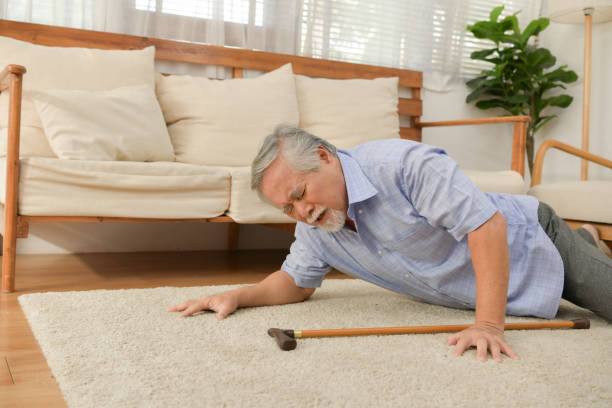As people age, the risk of falls increases due to various factors, one of which is the side effects of certain medications. Prescriptions that seniors commonly take can potentially interfere with balance, vision, and alertness, indirectly contributing to an elevated risk of falls. This article will explore several types of medications that might increase fall risks in seniors and provide advice on how to mitigate these risks.
Contents
Understanding the Role of Medications in Seniors’ Fall Risks
Medications play a critical role in managing health conditions and diseases in seniors. However, certain drugs can inadvertently increase the likelihood of falls. These medications can cause side effects such as dizziness, dehydration, or hypotension, all of which can contribute to instability and the risk of falling. Understanding these risks and managing them effectively is essential to maintaining seniors’ health and safety.
Medications That Can Increase Fall Risks
Some common medications that may increase fall risks include sedatives and tranquilizers, antipsychotics, antidepressants, antihypertensives (blood pressure medications), and even some over-the-counter sleep aids.
Sedatives and Tranquilizers
Sedatives and tranquilizers are commonly prescribed to help with anxiety or sleep disorders. However, they can cause drowsiness, confusion, and unsteadiness, especially in seniors. This can significantly increase the risk of falls. Non-drug alternatives should be considered, and if medication is necessary, it should be at the lowest effective dose.
Antidepressants
Antidepressants are another class of medications that can potentially increase fall risks in seniors. They can lead to side effects such as reduced alertness, low blood pressure, and even imbalance, particularly during the initial stages of treatment or dose changes. Careful monitoring and dose adjustments can help to mitigate these risks.
Antipsychotics
Antipsychotics, used to treat conditions like schizophrenia or bipolar disorder, can also pose a significant risk for falls among the elderly. These medications often cause drowsiness, impaired judgment, and unsteady gait, all of which can lead to increased fall risks. Close monitoring of the patient’s response and adjustments to the medication regime as needed can help manage these risks.
Antihypertensives
Antihypertensives, or blood pressure medications, can lead to dizziness and fainting spells in some seniors, particularly after standing up, which significantly increases the risk of falls. It’s essential to regularly monitor blood pressure and adjust medication doses as necessary to reduce these risks.
Over-The-Counter Sleep Aids
Over-the-counter sleep aids often contain antihistamines, which can cause confusion, drowsiness, and dizziness in seniors. These side effects can contribute to an increased risk of falls. Seniors should be advised to consult their healthcare provider before using these products.
Managing Medication Risks

To manage these risks, it’s essential for caregivers and seniors themselves to be aware of the potential side effects of their medications and to consult with healthcare providers about any concerns. Below are some tips for managing medication risks:
- Be aware of potential side effects and consult with healthcare providers about any concerns.
- Keep a list of all medications, including over-the-counter drugs and supplements, and share it with healthcare providers regularly.
- Regularly monitor blood pressure as changes in dose or medication may be necessary to reduce fall risks.
- Consider non-drug alternatives whenever possible, such as cognitive-behavioral therapy for anxiety or sleep disorders.
- Ensure that medication doses are regularly reviewed and adjusted by healthcare providers, particularly when starting a new medication or changing the dose.
What Happens If a Fall Occurs?
Despite our best efforts, falls may still occur. In the event of a fall, it’s important to seek medical attention immediately, even if there are no apparent injuries. Falls can cause internal damage that may not be visible and should not be ignored. Additionally, healthcare providers should be informed about any changes in medication or potential side effects that may have contributed to the fall.
Some tips to prevent falls at home include:
- Keep walkways clear of clutter and well-lit.
- Use handrails on stairs and in the bathroom.
- Install grab bars in the shower or bathtub.
- Wear proper footwear with good traction.
- Remove loose rugs or use non-slip mats underneath them.
Conclusion
In conclusion, seniors and their caregivers must be aware of the potential risks associated with certain medications and take proactive measures to manage them effectively. By understanding medication side effects and working closely with healthcare providers, we can help reduce fall risks and promote the health and safety of our aging population. Remember, a little caution can go a long way in preventing falls and promoting overall well-being in seniors. So, it’s essential to stay vigilant and take necessary precautions to ensure our loved ones’ safety.

